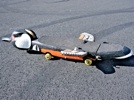

The interviews with Peralta, Mullen, and McGill (all greats in the skateboarding world) show just how much they admire Tony Hawk they are still in awe of him and his extraordinary accomplishments. He would surpass them shortly thereafter, regularly dominating the competition and introducing unprecedented maneuvers such that judges had to revise their curricula. In the film, Hawk's former team members Rodney Mullen and Mike McGill explain that because Hawk began as the underdog, he was determined not just to compete alongside his older peers but to excel. These were the core members of the Zephyr skate team, the Z-Boys. As a result, legends like Stacy Peralta (who is heavily featured in the documentary), Jay Adams, and Tony Alva developed the surf-skate style. During this time, young surfers were compelled to search for an alternative activity for days when the waves were flat or when the older locals were particularly hostile. It was similar to rollerskating that is, the rider executed elaborate spins and footwork on flat ground. In its humble beginnings in 1970s Venice, California, skateboarding looked entirely different from what it has evolved to be. Tony Hawk: Until the Wheels Fall Offbeautifully articulates how Tony Hawk's determination led him to unparalleled contributions to skateboarding as both a sport and culture. Skateboarding never quite had the same reputation as these classic American pastimes, yet Tony Hawk shifted the game so drastically that he made his name known across the globe.

Household names include basketball's LeBron James, soccer's David Beckham, and baseball's Babe Ruth. In every popular sport, there is one name that most Americans recognize regardless of how much or how little that person engages with the sport or related sports media.


 0 kommentar(er)
0 kommentar(er)
